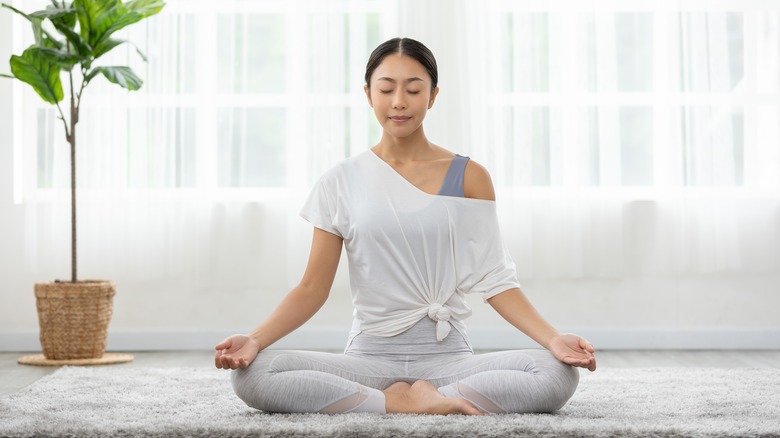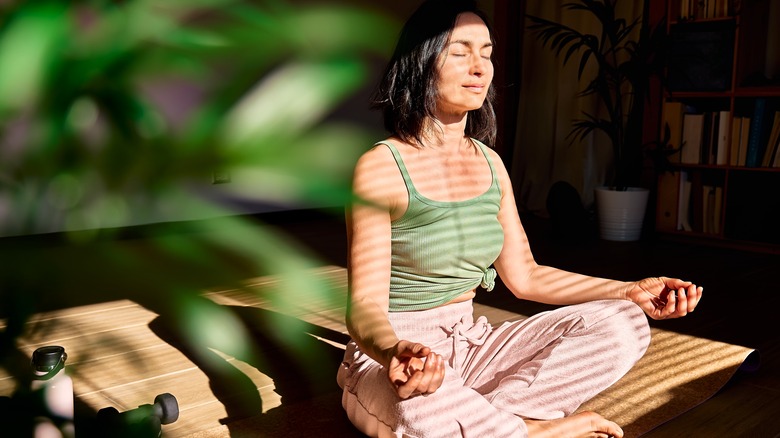Can Meditation Work Better Than Medication For Relieving Anxiety?
According to the National Alliance on Mental Illness, an estimated 40 million adults in the United States suffer from some sort of anxiety disorder. The disorder is marked by constant feelings of nervousness and unease, panic attacks, irritability, and physical symptoms such as headaches and insomnia.
Anxiety can arrest the senses, keeping you suspended in a constant state of fear and leaving you with the inability to live your life freely. Yet despite its effects, many people with anxiety don't always seek treatment for it. The Anxiety & Depression Association of America found that of the 6.8 million Americans that have General Anxiety Disorder, only 43.2% seek treatment for it.
Not only is there a stigma surrounding receiving help for anxiety, but there's also a fear around the risks of taking anti-anxiety medication. Many people hesitate to take medication for their anxiety due to their history of addiction, the potential side effects, and numerous other reasons (via Aspen Ridge Recovery.)
Those seeking an alternative to medication should still seek treatment and speak to a mental health professional. One treatment for anxiety that a doctor may recommend is meditation; a new study has shown that an ancient practice may be as effective as taking medication for some people.
If you or someone you know needs help with mental health, please contact the Crisis Text Line by texting HOME to 741741, call the National Alliance on Mental Illness helpline at 1-800-950-NAMI (6264), or visit the National Institute of Mental Health website.
How can meditation alleviate anxiety?
Meditation has scientifically proven benefits, but can it help with anxiety? The study, which was published by the journal JAMA Psychiatry, claims that daily meditation can have the same effects as taking a daily anxiety pill. The clinical trial studied 276 adults that had an anxiety disorder. Over the course of eight weeks, half of the adults were given Lexapro, an antidepressant, while the rest of the adults took part in mindfulness-based stress reduction programs in which they meditated for 45 minutes each day and took two-and-a-half-hour meditation classes weekly.
At the end of the study, researchers found that, across the board, symptoms went down by about 20% for both groups, with only mild side effects for those who took Lexapro.
For years, medical professionals have lauded meditation as an effective way to soothe mental health symptoms. According to Mayo Clinic, the practice helps to restore inner peace and balances your emotional well-being. The practice originated in India thousands of years ago and has been used in the East to gain insight about life to hopefully reach a point of true awakening (via Mind Works.) Now, in the West, meditation is primarily used to clear the mind, focus on a singular topic, or connect to the body and spirit, according to Healthline.
While this sounds promising, any changes to your current anxiety treatment should be discussed with your doctor. Talk to a mental health professional to find out which path to alleviating anxiety is right for you.

